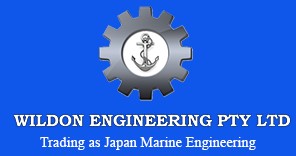An Overview About Yanmar Dual Fuel Engine
Blog | December 15th, 2020The use of natural gas is now attracting attention within the marine engine sector, both as a means of addressing fluctuating fuel costs, and as a way of reducing the burden on the environment. Basing on our reliable engines that will improve life cycle value for our customers, YANMAR have developed a dual fuel engine that can use both diesel and gas, which complies with IMO NOx Tier3 regulations as well as SOx Emission Control Area.
Yanmar Co., Ltd. is one of the most popular diesel engine manufacturers in Japan. It was founded in March 1912 in Osaka, Japan by Magokichi Yamaoka. What makes Yanmar notable is the fact that the company was the first to design and release a small diesel engine as early as the 1930s.
Setting Up The Road For Greatness
Yamaoka first engaged in managing his own business in the summer of 1906. His business would revolve around buying and repairing unused gas engines, which is a feat for Yamaoka as his business gains attraction. His rebuilt engines were sold at a much lower price compared to new engines. Even the installation of these engines can be done without additional charges.
Due to the growing popularity of his business, Yamaoka decided to finally expand his reach. He leased a piece of land at present-day 1-32 Chayamachi, Kita-ku and established Yanmar Co., Ltd, a full repair shop with an office. With various historical turmoils in Japan, his strategy of repairing and selling engines would later on collapse. But his fighting spirit would thrive, as he found a way to gain a new source of income for his business – manufacturing his own products.
A New Era of Products from Yanmar
All it takes is just one visit to a friend, where Yamaoka saw a prosperous future with producing powered rice huller. His company would eventually produce oil-powered engines that can be useful for agriculture applications. More related products were produced along the way, but the looming recession would, again, slow down the success of his company. Various economic and labour issues were lurking around the company every day, pushing Yamaoka to contemplate his future.
YANMAR has developed a unique control system. Through multiplexing of devices, this system achieves safety and redundancy even with single-engine-single-shaft vessels, allowing you to navigate with peace of mind. Note: Vessel classification currently pending
Can Operate With Natural Gas In Any Region
Through real-time analysis of cylinder internal pressure together with high-speed control, this system avoids abnormal combustion (knocking) even when running on natural gases with a low methane number. Offering superior combustion stability, this engine can operate with natural gas in any region and with no output restrictions.
Switch Fuels Even At 100% Output
Freely select which fuel to use. The system makes it possible to switch from diesel mode to gas mode during navigation, with no output restrictions. Furthermore, during emergencies the system can shift safely and instantaneously from gas mode back to diesel mode.
Source
Yanmar Australia. (n.d.). Dual Fuel Engine. Retrieved December 11, 2020, from Yanmar Australia: https://www.yanmar.com/au/marinecommercial/products/dual_fuel_engine/
Optimized by NetwizardSEO.com.au
Recent Posts
- Yanmar Marine Compressors: Applications in Engine Starts, Valves, and Safety Systems
- Water vs Oil in Stern Tube Bearings: The Cost & ESG Truth Shipowners Can’t Ignore
- Yanmar Turbochargers: How Correct Spec-Matching Supports Lower SFOC and Prevents Surge
- Yanmar Diesel Generators: Planned vs Predictive Maintenance Strategies for Remote Operations
- Mareflex SOLAS Marine Tapes: Safety Applications on Marine Vessels
- Yanmar Propulsion Systems: FPP vs CPP Propellers for 6EY and 6N Series Fuel Efficiency
- Mitsubishi K.K. Purifier Separator: The Key to Cleaner Fuel and Smoother Operations
- Kemel Air Seal Retrofits: Leak-Free Stern Tube Seals and Reduced Lube-Oil Risk
- Yanmar Auxiliary Generators: Sizing for Reefers, Hotel Loads, and Dynamic Positioning Systems
- Water Lubricated Stern Tube Bearing (EVR): Proven Technology for Smooth and Quiet Operations
